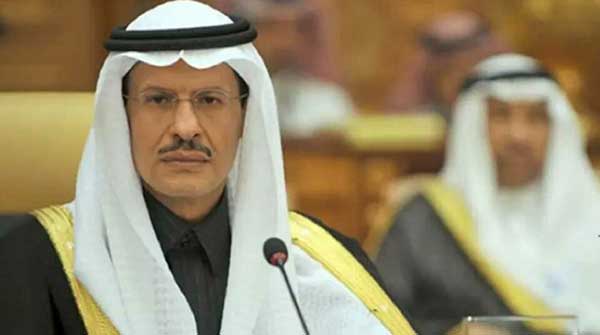 The United States and Saudi Arabia are locked in a bitter battle over oil, CNN Business reported last Friday. And it carries consequences, not only for the future of the global energy order but also for the future world order. Everything is at stake.
The United States and Saudi Arabia are locked in a bitter battle over oil, CNN Business reported last Friday. And it carries consequences, not only for the future of the global energy order but also for the future world order. Everything is at stake.
Ever since the world began growing out of the COVID pandemic and global oil consumption began to rise, producers within the Organisation of Petroleum Exporting Countries and its allies, including Russia, in the expanded OPEC+, persisted with their policy of keeping a tight lid on crude output. The objective was clear – keeping a floor under the global oil markets.
To meet their budgetary needs, producers need higher oil prices. The target of the producers ranged from US$80 to US$100 barrels per day, some reports indicate. Opening their crude taps could easily mean jeopardizing oil market prices, analysts insist.
 Prince Abdulaziz bin Salman bin Abdulaziz al-Saud (Image supplied) |
| Related Stories |
| Saudi Arabia losing confidence in U.S. security blanket
|
| Why the world should be worried about oil supplies
|
| Energy-rich Middle East countries smiling all the way to the bank |
This policy of keeping a tight leash on oil market prices by keeping output in check did not meet Washington’s approval. President Joe Biden wanted the oil producers to open their taps to lower prices at gas stations, especially in a mid-term U.S. election year.
To persuade Riyadh to increase output, Biden even agreed to reverse his campaign promise of making Saudi Arabia a “pariah” state that ‘it deserved to be’ and undertook a trip to Saudi Arabia last July.
After the Biden trip, U.S. officials thought they had reached a deal with Saudi Arabia to boost oil supplies through the end of the year, the New York Times reported last week.
That optimism was wrong. The two are now openly engaged in a battle for market control. And no respite is in sight.
Biden not only emphasized the ‘consequences’ for Saudi Arabia of the OPEC+ decision to cut output by two million barrels per day (bpd) early in October, but he also announced the release of 15 million barrels from the U.S. strategic petroleum reserves. He also urged domestic U.S. oil producers to work to increase their output and asked the oil majors to pass on their windfall profits to lower gas prices for the consumers.
To punish Riyadh further, the Biden administration is also considering delaying promised military aid to Saudi Arabia, press reports indicated.
All this was enough to infuriate Riyadh. And they did not keep it secret. “People are depleting their emergency stocks, had depleted it, used it as a mechanism to manipulate markets while its profound purpose was to mitigate a shortage of supply,” Saudi Petroleum minister Prince Abdulaziz bin Salman said during the conference, ‘Davos in Desert’ in Saudi Arabia last week. “However, it is my profound duty to make it clear to the world that losing emergency stock may become painful in the months to come,” he warned. The tone and tenor of his comments were clear.
And while there have been serious talks on Capitol Hill of passing the NOPEC (No Oil Producing and Exporting Cartels) legislation that would empower the U.S. Justice Department to go after OPEC nations on antitrust grounds, Saudi officials have been privately warning the kingdom could retaliate by selling U.S. Treasury bonds, the Wall Street Journal reported last week.
However, for Saudi Arabia to withdraw entirely from the U.S. markets may not be easy. Precedents of freezing assets of a foreign country in the U.S. exist, and if the relationship reaches that low level, this may not remain entirely out of the question.
However, Riyadh also has cards up its sleeves. One possibility could be that Saudi Arabia, the de facto leader of OPEC+, could remove further supply from world oil markets – or at least refuse to respond to future price spikes as the West continues to crack down on Russia, the CNN Business report underlined.
This would unleash chaos. Further curbs on OPEC supply would lift gasoline prices and worsen inflation, raising already-high recession risks.
The Saudi approach to the changing geopolitical dynamics is becoming evident. Instead of accepting the dictates of Washington, Javier Blas of Bloomberg says, Saudi Arabia has adopted a ‘Saudi First’ policy while pursuing its energy, economic and foreign policy agenda.
Blas insists that this will have consequences for the rest of the world, chiefly via oil prices, but also when it comes to shaping Middle East diplomacy and the fight against climate change.
And he has a point.
Toronto-based Rashid Husain Syed is a respected energy and political analyst. The Middle East is his area of focus. As well as writing for major local and global newspapers, Rashid is also a regular speaker at major international conferences. He has provided his perspective on global energy issues to the Department of Energy in Washington and the International Energy Agency in Paris.
For interview requests, click here.
The opinions expressed by our columnists and contributors are theirs alone and do not inherently or expressly reflect the views of our publication.
© Troy Media
Troy Media is an editorial content provider to media outlets and its own hosted community news outlets across Canada.

